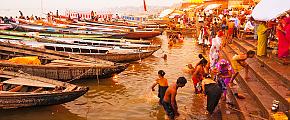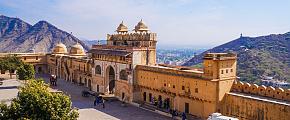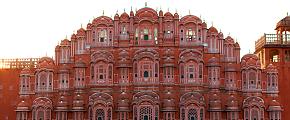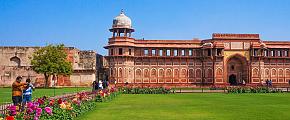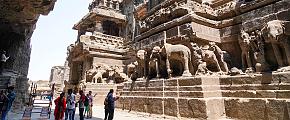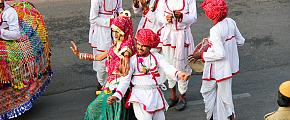What are 10 of the Biggest Myths and Misconceptions About India?
India has often been thought as a place of mystics, mysteries, and magic. For people who haven't traveled to the country before, it's hard to know what it really is like. Some people tend to generalize everything about India, its people, culture, religion, etc., and some of the perceptions we learn from books or media can be outdated or untrue. Is India a land of snake charmers? Does it have a national language called Hindi? Are Indians vegetarians? Read on to find out my list of 10 common misconceptions foreigners might have about India.
1. India is a poor country
This is what most people would think before they travel to India. Even though India is a developing nation home to millions of poor people, the country itself is actually rich. It has 119 billionaires and ranked 6th among the world's wealthiest countries for 2017 according to a report by New World Wealth.
2. Real India is dirty and chaotic
The media constantly portray India as a country of dirt and chaos. Travelers to the country often expect to see the frugal life of the local people. Yet this is only half true. They seem to be unmindful of the reality that the vibrant cities of India also offer high-end accommodations, fine dining, nightlife, and top shopping experiences.
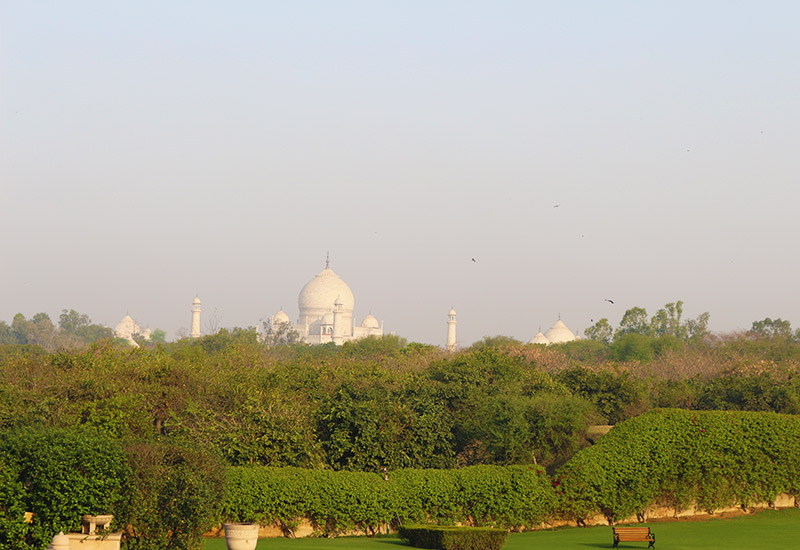 A hotel room in Agra with view of Taj Mahal
A hotel room in Agra with view of Taj Mahal
3. Indians are uneducated
Despite the fact that India still has a large number of illiterate population, this stereotype doesn't really reflect reality. The Indians actually attach great importance to education. Even poverty-stricken families try very hard to let their kids attend the best school possible as they understand a better education is essential to a better future. Doctors and engineers are two of the most popular professions and a great many people have MBA or PhD qualifications. Besides, India boasts a large number of business schools and the government is endeavoring to offer quality higher education.
4. Indians are not allowed to date
Contrary to popular belief, dating is not a taboo in India. Though arranged marriages remain common, people are now free to date. Some even go online to look for their life partner. It is interesting to find that the majority of young Indians still prefer to marry someone chosen by their parents.
5. All Indians are Hindus
To say all Indians are Hindus is just like to say all Indians speak Hindi, which is not true. India is a land of various beliefs. Hinduism is the dominant religion, whose followers represent over 80% of the total population. It coexists with other religions such as Buddhism, Islam, Christianity, Jainism, and Sikhism.
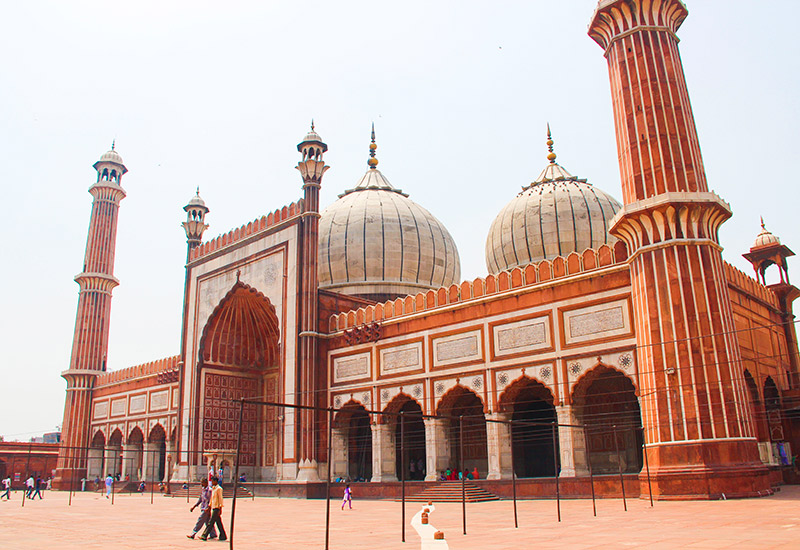 Jama Masjid in Delhi
Jama Masjid in Delhi
6. Hindi is the national language of India
Languages in India are as diverse as its culture and religion. Some 780 languages are spoken across the country, the second highest number of languages in the world after Papua New Guinea which is said to have 839 languages. Among these languages, 23 of them are recognized as official languages including Hindi, English, Bangali, Kashmiri, Nepali, Sanskrit, Tamil, Urdu, etc. While Hindi is the most prominent language in the country, with over 422 million speakers, it is not the national language as no language in India enjoy such a status according to the Constitution of India. Hindi is mainly spoken in northern and central India, and is one of the two languages used by the government (the other being English).
7. Snake charmers are everywhere
Many may still consider India to be a land of snake charmers who impress crowds of onlookers with their skill to control the behavior of some of the most dangerous animals on earth. As a matter of fact, snake-charming has never been widely seen all over India. It was mainly popular in Rajasthan which is home to the Kalbeliya tribe, a snake charmer caste.
It is now rare to see this centuries-old folk art at markets and festivals where it used to be a regular fixture. The main reason behind the decline of this iconic art is globalization and the Indian government's wildlife protection regulation as it is regarded outdated and fewer and fewer now learn the skill. Of course, there is far more to explore in India than just the snake charming.
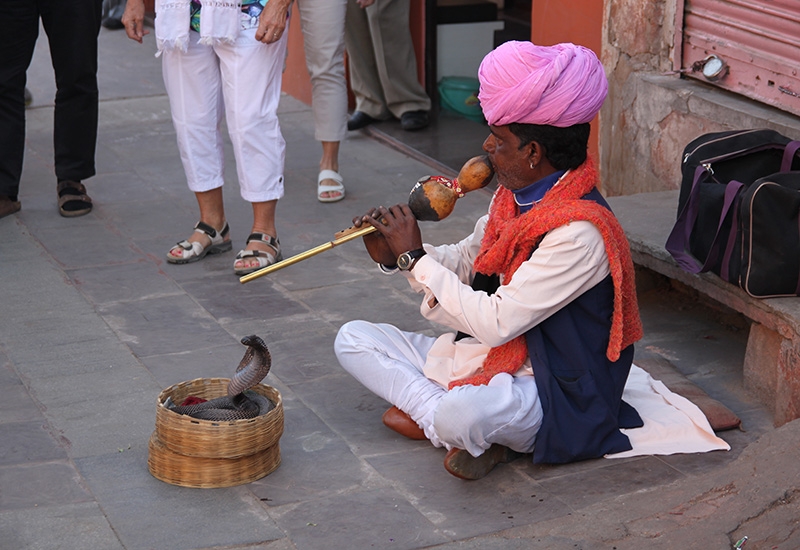 A snake charmer in India
A snake charmer in India
8. All Indian foods are spicy
Spices are widely used in Indian cuisine, especially cumin, coriander, mustard seeds, ginger, cinnamon etc. But just because they contain spices does not necessarily mean they have to be spicy (when it means chili hot). Chilies are not indispensable in making most Indian dishes. Moreover, India is so big and diverse. Each region has its unique food, some more spicy, some less, and some not at all.
9. Indians are vegetarians
Vegetarianism is often considered the norm in India due to its cultural and religious traditions. Thus it is quite natural to assume that India might be a vegetarian majority country. This is not the case though. A survey conducted by India's Sample Registration System (SRS) in 2014 showed that non-vegetarian population over the age of 15 accounted for 71%. Meat or fish consumption is prevalent in many communities especially among the Muslims as well as the coastal states like Kerala and West Bengal which is known for their seafood dishes.
In spite of that, India still has the lowest rate of population consuming meat, and more vegetarians than the rest of the world combined according to 2007 statistics of the UN FAO (Food and Agriculture Organization of the United Nations). It is a great country to visit for vegetarian travelers as vegetarian restaurants are easy to find and there are plenty of options.
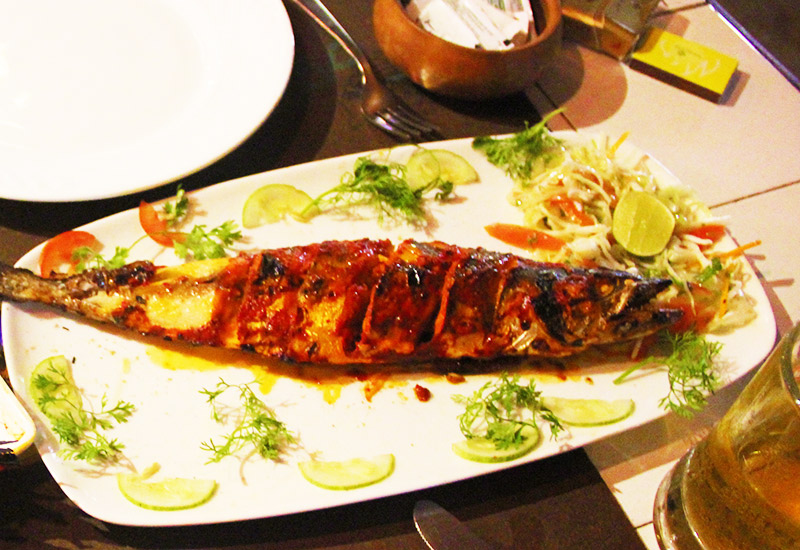 Fish served in a local restaurant in Goa
Fish served in a local restaurant in Goa
10. India is the birthplace of Lord Buddha
Where was Buddha born? If you ask Indians, who are proud of their Buddhism heritage, they would probably say it was India. Though Buddha did achieve enlightenment in India, he was in fact born in Lumbini, Nepal according to the UNESCO. Approximately 7.5 million Indians practice Buddhism today, most of whom are people living in the Himalayan region, southern India or the area bordering Myanmar.
These are 10 of the most common misconceptions that many foreigners have about India. But don't just take our word for it. Uncover the truth yourself on a tailor-made India journey! For any inquiries, feel free to contact us at trip@odynovotours.com.

